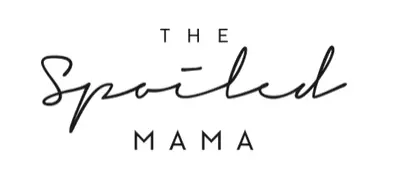Nearly Two-Thirds of Supermarket Baby Foods Are Unhealthy, Study Finds
Hold onto your shopping carts, parents! A new study uncovered shocking news about baby food lurking on supermarket shelves. It turns out that nearly 60% of baby foods marketed for little munchkins ages 6 to 36 months are not just a little unhealthy—they fail to meet the World Health Organization's (WHO) nutritional guidelines altogether! This eye-opening research was published in the peer-reviewed journal Nutrients and examined 651 products from 10 major supermarkets in the US .
What’s the Deal with Ultra-Processed Foods?
So, what’s the fuss about ultra-processed baby foods? Well, they’re often packed with far too much sugar and salt, alongside some sneaky marketing claims that could easily mislead tired parents. Can you believe that:
- 70% of the baby foods didn’t meet the WHO’s recommendations for protein content
- 25% of them flunked calorie requirements
- And 20% of these products contained salt levels that would make anyone raise an eyebrow
Dr. Elizabeth Dunford, the study’s senior author and a nutrition whiz at the University of North Carolina at Chapel Hill, pointed out, “Research shows 50% of the sugar consumed from infant foods comes from pouches, and we found those were some of the worst offenders.” Those cute little pouches may be a lifesaver for busy parents, but they come with a sugar rush that can be a bit concerning. However, you can make your own food and put in in reusable silicone food pouches .
The Baby Food Pouch Boom

Pouches have taken the baby food market by storm, rising by a whopping 900% over the last 13 years! They’re like the rock stars of the baby food world, but not without their critics. Dr. Mark Corkins, a pediatric gastroenterologist at Le Bonheur Children’s Hospital, warns that relying on these baby food pouches could mean kids miss out on learning how to chew and appreciate different textures. He said, “Children have to learn to chew, so they should be eating regular fruits, not pureed, sweetened things in a pouch. Often, these blends are unnatural and much sweeter than a real fruit, so the child’s being taught to only like super sweet things.”
Where Are the Regulations?
Let’s talk about labels! The study revealed that a staggering 99.4% of baby food products had at least one marketing claim that didn’t align with WHO recommendations. These claims can be as misleading as a magician’s trick, with many products boasting terms like "non-genetically modified" (70%) and "organic" (59%) to give them a shiny, nutritious appearance. “The reason we call it the Wild West when we talk about the baby food aisle is that manufacturers get to pick and choose which elements of their product they want to highlight,” said Dr. Dunford. “They certainly don’t highlight the bad stuff, right? If their product is high in sugar, they will just say, ‘no added colors or flavors’ on the label.”
In contrast, countries like Australia and the UK require stricter labeling, making it easier for parents to know exactly what they’re feeding their little ones. If a savory food had 10% spinach and 8% beef, you’d see it labeled as “Spinach and Beef Pie” instead of “mystery blend” .
Conclusion: Shop Smart for Your Tiny Tots
With so many baby foods failing to meet basic nutritional standards, it’s clear that parents need to be detectives when shopping for their kiddos. Look for options that align with WHO guidelines and avoid those sugary traps! After all, your little one deserves the best start in life—one bite at a time. You can also make your own food and put in in reusable silicone food pouches .
Sources
- Dunford, E., et al. (2024). Nutrients.
- World Health Organization (WHO) Guidelines.
- Corkins, M. (2024). American Academy of Pediatrics.
- University of North Carolina at Chapel Hill.
- The George Institute for Global Health.
- CNN reporting on baby food health standards.
